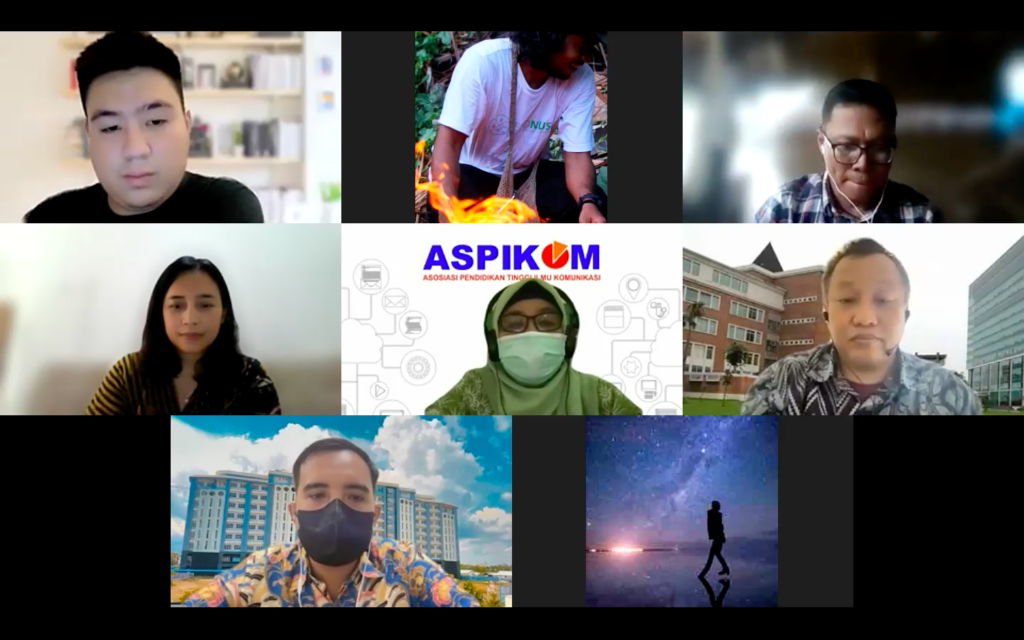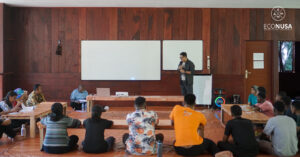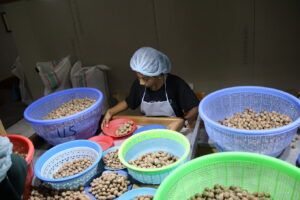
Based on the National Social Economy survey (Susenas) 2020, one out of four Indonesian populations is youngster. The report elaborates that Indonesia is dominated by young people comprising 64.50 million or 23.86 percent of the population. This is deemed a great potential in all aspects, particularly in environmental aspect closely related to the endeavor to protect Indonesian natural resources.
To shape up sustainable ecology can be done in many ways. One of them could be done through environmental campaign both for ocean or forest. The environmental challenge is the basic foundation before performing action to save environment. Information on biodiversity is wrapped in various forms of campaign to raise public awareness.
Read also: I am Digital, therefore I Exist
On the other hand, Indonesia has come up with the 4.0 industrial era which will grow and adjust to technological advancement. Internet user will grow larger. Citing the Hootsuite’s Indonesian Digital Report 2020 report, internet users in Indonesia are 175.4 million in 2020. The figure increases by 17 percent or 25 million as from the previous year.
As from the figure, internet use among youth is very significant. In the Indonesian Youth Statistics 2020, it is reported that internet use among youth is 85.62 percent as from the total young population of 16-30 years of age.
Regarding the fact of demographic bonus and high frequency of internet use, EcoNusa initiated a Youth Digital Campaigner (YDC) program in response to the two big potentials. The program is intended to motivate youngster’s active role to involve in articulating adverse impact of climate crisis and information on the impact of natural resources exploitation. With the YDC program, it is expectedly to give transformation for a sustainable management of natural resources.
Read also: The Fate of Democracy and Environment are at Youngsters’ Hands
The initiative of YDC got positive response from the Association of Communication Science University (ASPIKOM) with more than 350 study programs of Communication Science in Indonesia. The cooperation of both entities will build more effective capacity building and implementation of communication science among youngsters.
“ASPIKOM appreciates the collaboration of EcoNusa and ASPIKOM. The cooperation here will get full support from all regional coordinators nationwide,” said Mulharnetti Syas, representing ASPIKOM coordinator for central Indonesia chapters, who represented the chairman absence on the discussion with EcoNusa on Tuesday, 22 February 2022.
Read also: Young People, Key to Environmental Success in Namatota
EcoNusa’s Youth Mobilization Coordinator, Lukas Kristian Windya Nugraha, said the involvement of all stakeholders is badly required to build a movement in anticipation of climate crisis. Let alone when an organization has extensive networking.
“To mobilize youth, we should be able to identify stakeholder with massive youngsters foundation with extensive grassroot networks. ASPIKOM is one of them. They have lecturers and students of communication science across from universities in Indonesia as their networks,” said Lukas.
Editor: Lutfy Putra & Leo Wahyudi




